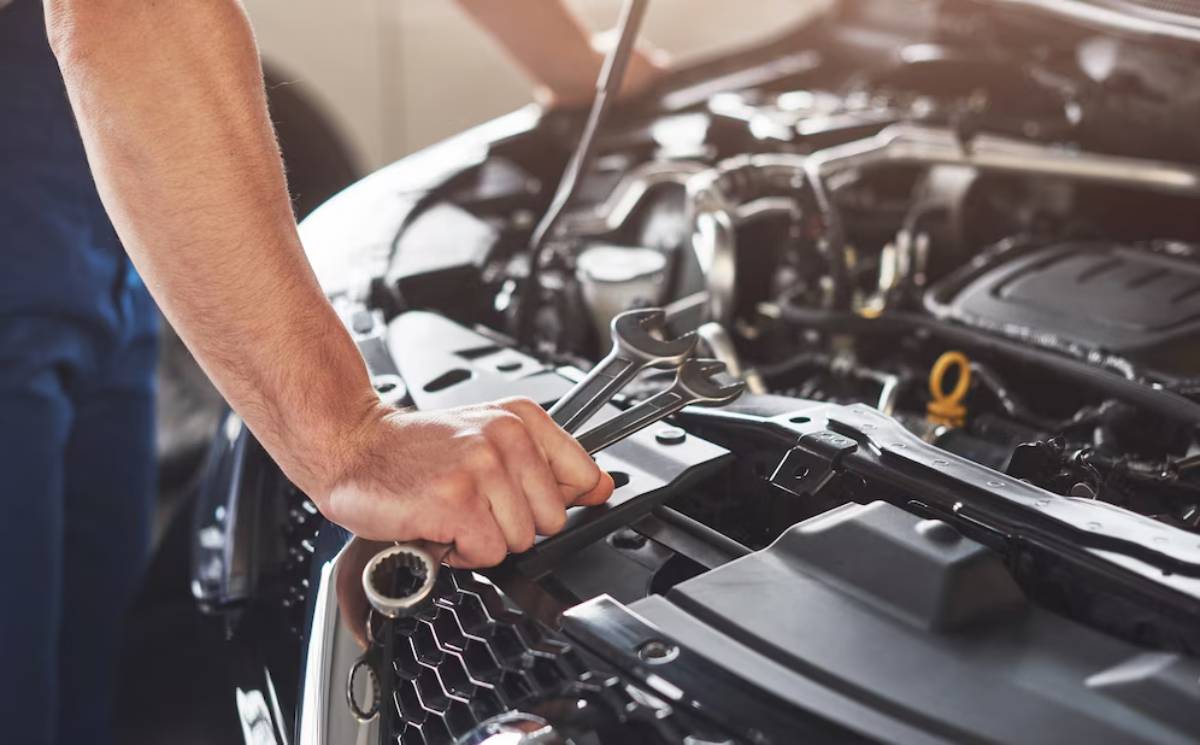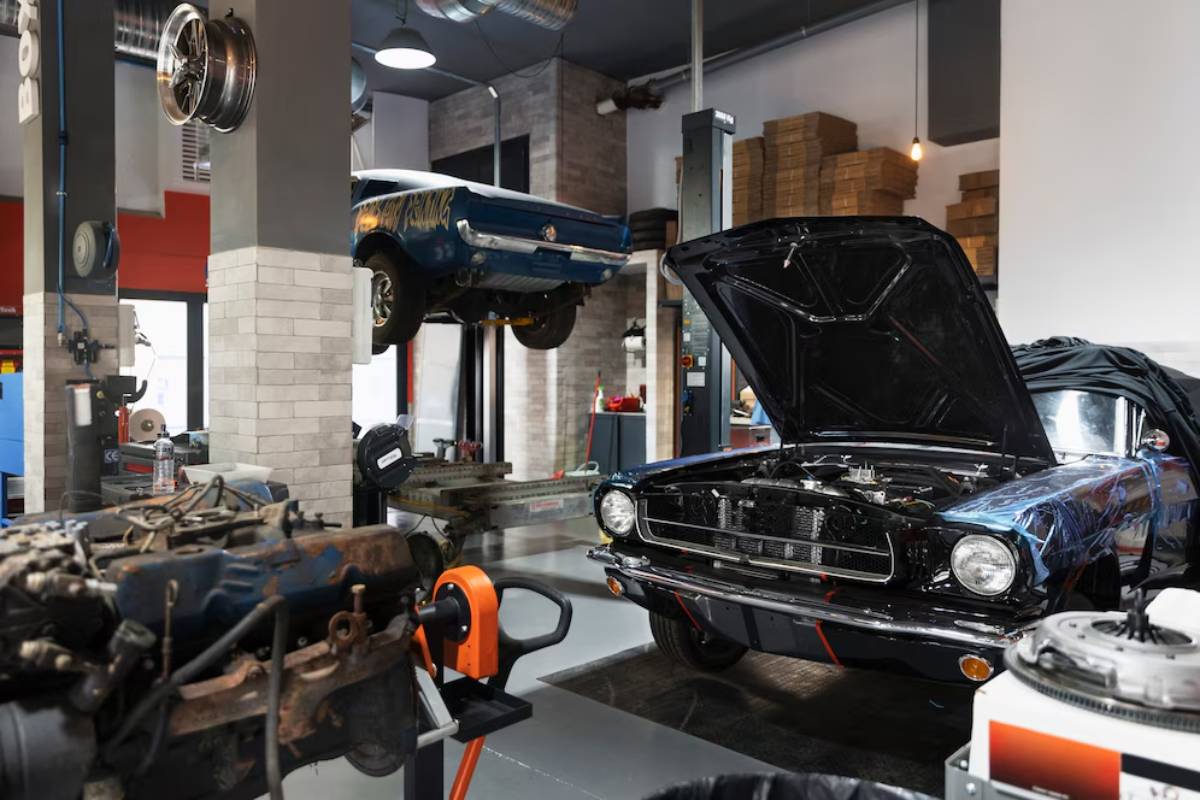
Performance Chips and Tuners: Are They Worth It?
In the world of car modification, fans seek new ways to enhance their vehicle’s performance without spending a lot. Many people find performance chip tuning appealing. It promises better horsepower, improved fuel economy, and a more responsive drive—all at the push of a button.
But are these claims too good to be true? There are many ECU tuners, plug-and-play modules, and reprogramming tools for almost every make and model. So, it’s worth checking if these digital upgrades really live up to their promise. This article looks at performance chips and tuners. We’ll explain how they work and if they are a good investment for upgrading your car’s performance.
What Is Performance Chip Tuning?

Performance chip tuning means changing a vehicle’s electronic control unit (ECU). The ECU controls fuel injection, ignition timing, turbo boost pressure, and throttle response.
Two Main Types of ECU Modifications:
- Plug-and-Play Chips/Modules
- Installed in the engine bay or OBD-II port
- Alter signals from the ECU to components like fuel injectors and sensors
- Often reversible and marketed as DIY-friendly
- Flash Tuners/Programmers
- Reprogram the ECU itself using a handheld device or software
- Offer multiple performance maps or “tunes”
- Can include custom tuning for specific vehicle mods
Both types are designed to optimise performance beyond factory settings, often tailored for either power, efficiency, or a balance of the two.
The Promises: What Manufacturers Claim
Marketing around performance tuners often includes bold claims. While some are realistic, others may oversimplify the results.
Typical Claims:
- Increased horsepower and torque
- Enhanced throttle response
- Improved fuel efficiency
- Smoother power delivery
- Better towing capacity (for trucks and SUVs)
- Adjustable performance modes (e.g. economy, sport, race)
It’s easy to see the appeal—especially when a plug-in chip advertises gains of 20–50 horsepower without needing to open the bonnet.
But how much of this is accurate, and how much is hype?
The Reality: Do ECU Tuners Actually Work?
Yes—but with caveats.
Well-designed ECU tuners can provide noticeable improvements, especially in turbocharged vehicles. Modern ECUs are often programmed conservatively from the factory to account for global emissions standards, varying fuel quality, and long-term reliability. This means there’s usually some untapped potential that a good tune can unlock.
Gains You Can Expect:
- Naturally aspirated petrol engines: 5–10% increase in power
- Turbocharged petrol engines: 15–25% increase in power
- Turbo-diesels: Up to 30% gains in torque, ideal for towing or off-road use
Pros of Performance Chip Tuning
1. Affordable Power Upgrade
Compared to physical upgrades like turbochargers or exhaust systems, ECU tuning is relatively inexpensive and yields immediate results.
2. Customisability
Many ECU tuners offer multiple maps (e.g. eco, performance, towing), allowing users to switch depending on driving needs.
3. Improved Driveability
Increased low-end torque and throttle sensitivity can make city driving smoother and motorway overtaking more confident.
4. Reversibility
Most reputable ECU tuners offer “restore to stock” functions, allowing users to revert changes for warranty or resale purposes.
Cons and Risks to Consider
1. Warranty and Insurance Concerns
Modifying your ECU can void the manufacturer’s warranty and affect insurance coverage. Even if you restore to stock, some dealerships may detect the change.
2. Engine Longevity
A poor-quality tune or excessive power increase can put stress on internal components, reducing engine lifespan or leading to failure if not properly monitored.
3. Legal and Emissions Compliance
In some regions, ECU tuning can render your vehicle non-compliant with emissions regulations. Be sure to check local laws.
4. Misinformation in the Market
Low-cost, generic chips that plug into the OBD-II port and promise huge gains with no effort are often scams or ineffective at best.
Choosing the Right ECU Tuner
If you’re considering car performance upgrades through tuning, it’s essential to select a quality product from a reputable manufacturer.
What to Look For:
- Proven dyno test results and customer reviews
- Compatibility with your specific make, model, and engine
- Reversibility or stock tune restoration
- Custom tuning support or remote map updates
- Transparent customer support and return policies
Trusted Brands in the Market:
- Cobb Tuning
- Superchips
- APR (for VW/Audi)
- SCT Performance (for Ford and GM vehicles)
- RaceChip (popular in Europe)
Be cautious of “one-size-fits-all” modules claiming to work across dozens of makes and models.
How Performance Chips Fit Into a Tuning Strategy
Performance chips are just one part of a broader vehicle enhancement strategy. They work best when combined with complementary upgrades.
Recommended Pairings:
- Cold air intake: Improves airflow to match fuel adjustments
- Free-flowing exhaust: Reduces backpressure for tuned engines
- Intercooler upgrade (for turbo engines): Lowers intake temps for sustained performance
- Performance spark plugs or fuel injectors: Ensures reliable ignition and fuelling
Together, these components maximise the gains from ECU tuning while maintaining safe operating conditions.
Should You Tune a New or Used Car?

Tuning a brand-new vehicle comes with greater risks, particularly if you’re concerned about voiding your warranty. Many enthusiasts wait until the car is out of warranty before making significant ECU modifications.
However, if your car is several years old, tuning can breathe new life into the driving experience, especially when paired with fresh performance parts and proper maintenance.
Fuel Economy: Fact or Fiction?
Many performance chips claim to improve fuel efficiency. While this is sometimes true, it depends heavily on your driving habits and the nature of the tune.
- Economy tunes focus on efficiency by adjusting shift points, throttle response, and fuel delivery. Drivers with a light foot may see improved mileage.
- Performance tunes, however, typically increase fuel consumption under load—especially during spirited driving.
Installing an ECU Tuner: DIY or Pro?
DIY Installation:
Most plug-and-play chips or handheld tuners are designed for simple at-home installation, often using the OBD-II port and an app or interface. Always follow instructions precisely.
Professional Installation:
For custom or flash tunes, it’s best to have the job done by a certified mechanic or tuning shop. This ensures safe parameters and proper calibration—especially for complex engine setups.
Final Verdict: Are Performance Chips and Tuners Worth It?
Yes—if chosen and used wisely.
For drivers seeking a tangible boost in performance, smoother power delivery, and a more responsive vehicle, a quality ECU tuner can be a highly effective upgrade. It’s one of the most accessible and cost-effective ways to enhance your car’s potential—particularly if you’re modifying a turbocharged model.
However, the benefits depend entirely on selecting the right product, maintaining realistic expectations, and respecting the limits of your engine.
Power with Responsibility

Performance chip tuning isn’t a magic solution—but when done properly, it can significantly enhance your driving experience. For many, it’s a gateway into the world of car performance upgrades, offering measurable gains without complex installations or major mechanical changes.
Take action today: If you’re ready to explore tuning, research reputable brands, consult your vehicle’s manual, and consider a conservative approach that balances performance and reliability. Your car—and your wallet—will thank you in the long run.